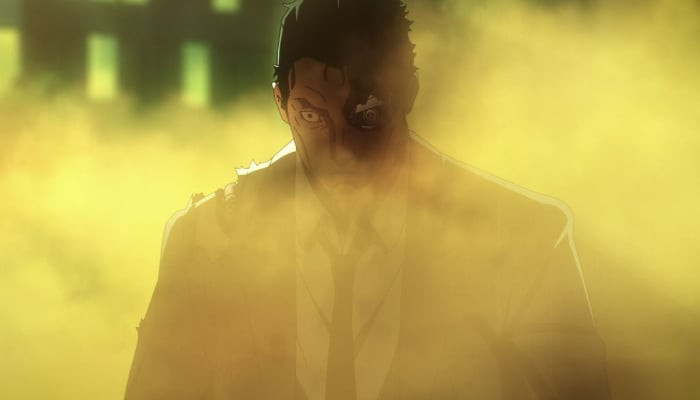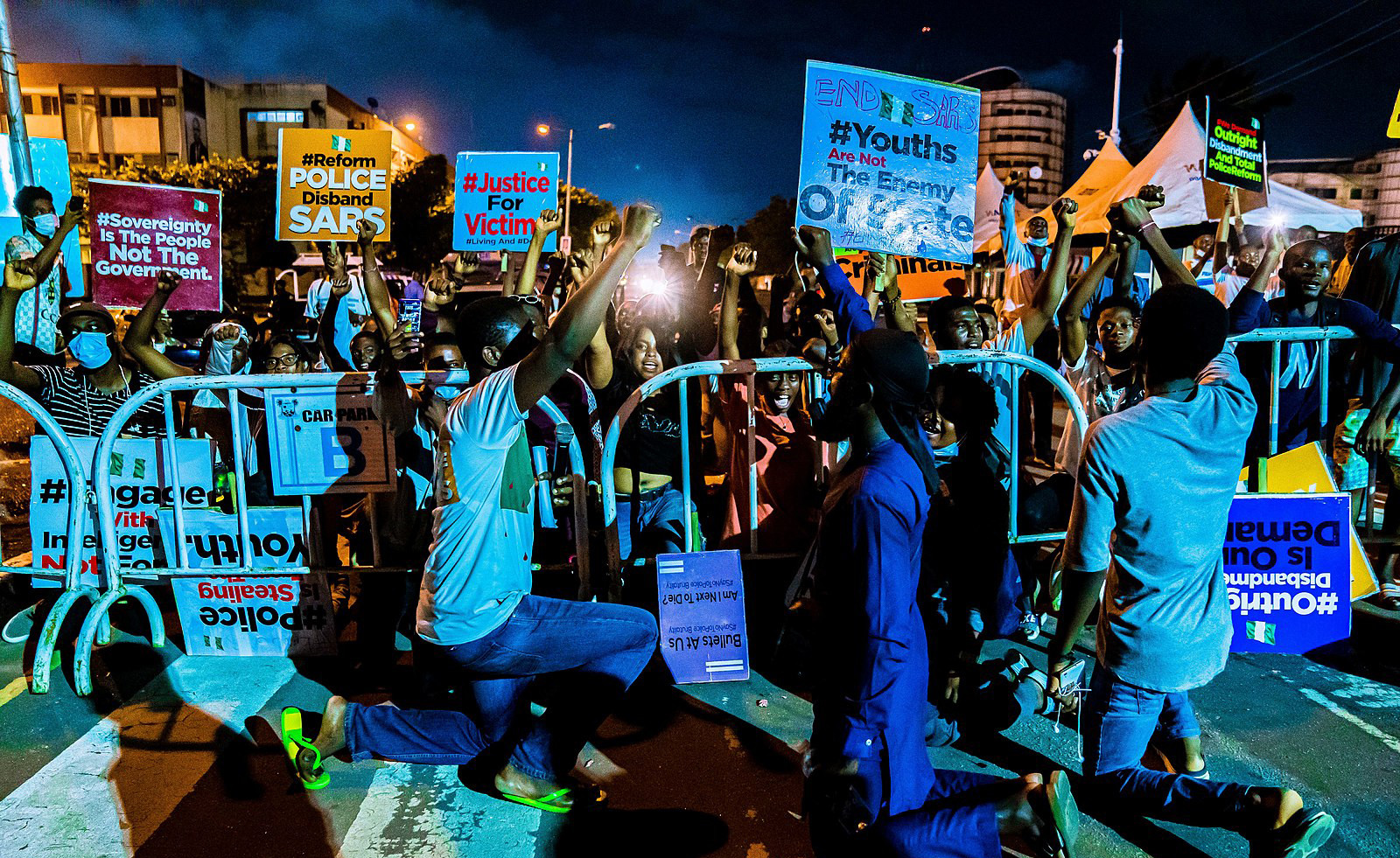A Review of Netflix's New "Terminator Zero" Anime Series
Watching Arnold Schwarzenegger plucking out his cybernetic eyeball in director James Cameron's 1984 sci-fi classic "The Terminator" would tend to have a traumatic effect on any youngster seeing the film on a grainy VHS copy in the '90s. That's exactly what happened to "Terminator Zero's" writer, creator and showrunner Mattson Tomlin when he was just eight years old.
This new adult animated series from Netflix is that timely Terminator-centric project that fans have been praying for after suffering through the last two sequels, "Terminator Genisys" and "Terminator: Dark Fate." Partnering with "Bleach" director Masashi Kudo, Tomlin has injected this killer project with that same sense of abject horror he experienced as a child who had to shut the video tape off and return it.
Tomlin and Kudo bring a remarkably focused intensity and ferocious creativity to "Terminator Zero," and, as you breeze through the eight insanely entertaining episodes, you might wonder why it's taken so long for someone to come along and produce an anime series set in the "Terminator" universe. But puzzlement will soon give way to gratitude that this rare project was shepherded by two passionate talents, and that Netflix gave the initial green light for it to come online at all.
Tokyo's Judgment Day
Removed from the U.S./Mexico border region, the setting of past "Terminator" installments, this first-ever animated iteration takes place in Tokyo. Its script focuses on that most auspicious of dates in "Terminator" canon — Judgment Day, Aug. 29, 1997. We follow Eiko, a young female freedom fighter from the future who travels back in time to 1997, where she must confront a genius scientist named Malcolm Lee. Lee has created an advanced AI he calls Kokoro to help defend humanity against Skynet's extermination agenda. Also targeting Lee and his children is a ruthless T-800 assassin from 2022 whose programming requires it to also stop the scientist and his work.
A Familiar Tone, A New Look
First and foremost, "Terminator Zero" exhibits the pure DNA of the two James Cameron-helmed "Terminator" films which Tomlin has the utmost respect and adoration for — 1984's "Terminator" and 1991's "Terminator 2: Judgment Day," aiming to replicate the fear and flair that made this such an iconic franchise for the past 40 years. Tomlin has crafted the engaging plot to exist in two distinct timelines, that of 2022 after Judgment Day has arrived, and 1997 on the eve of that apocalyptic event when Skynet became self-aware and carried out nuclear Armageddon.
For the Terminator's character design, Tomlin did a bit of research and discovered in an old interview that Cameron was thinking of casting Lance Henriksen as the Terminator since the character was originally envisioned as the ultimate infiltrator. This homicidal cyborg was someone who would blend into any crowd while hunting down its human prey. Gone here is the bulky bodybuilder physique, replaced by a lean, sweaty figure with an off-kilter expression and scary demeanor.
Production I.G ("Ghost in the Shell") has done a masterful job in producing the bloody, bullet-riddled animation here, and the finished product reflects love, care and attention to detail. Bleak Tokyo cityscapes are punctuated by lurid patches of saturated color. Brilliant muzzle flares leap from chattering machine guns. Hyper-alloy endoskeletons gleam in the cold glare of factory illumination. It's a complete sensory envelopment elevating the miniseries to impressive heights.
A Story Rooted in Human Choices
The level of gore and violence in "Terminator Zero" is what fans of hardcore anime and science fiction have come to expect, and it does not disappoint in that arena. Yet it's all grounded in a very humanistic story in which existential questions are asked and critical choices have unthinkable consequences. Since Tomlin was the co-screenwriter of director Matt Reeves' "The Batman" and its upcoming sequel, "The Batman II," the filmmaker's love of dark material shines through in every sequence.
But what pulls together this sci-fi sensation that pivots back to the property's slasher roots is the penetrating synthesizer score from composers Michelle Birsky and Kevin Henthorn. Their haunting music offers a moody, mildly melancholy accompaniment to each episode, from driving electronic tracks to bittersweet piano interludes as intercontinental ballistic missiles soar into the sky or the three ghostly avatars of Kokoro's digital consciousness explain the true nature of time and fate.
Birsky and Henthorn are both friends and collaborators of Tomlin, who also provided the score to his directorial debut titled "Mother/Android," which was also centered around AI and robots.
The Heart of the Machine
Malcolm Lee (voiced in English by André Holland) is your typical workaholic dad. His three kids just want to hang out and even though he claims they’re the most important thing in the world to him, Malcolm still leaves them at home with their nanny, Misaki (Sumalee Montano), while he heads into the office alone. To be fair, Malcolm has a lot on his plate. His wife is dead. At night, he’s haunted by nightmares of a nuclear attack that kills his children (and the rest of the world). So each day, he locks himself in a giant empty room (not unlike The Sphere in Las Vegas) and talks to his A.I. creation about how to prevent an apocalypse he knows is coming. It’s 1997. Judgment Day is right around the corner. And only he can stop it.
Or so he thinks. In 2022, Judgment Day has already happened. Eiko (Sonoya Mizuno) is a resistance fighter who’s just eradicated a particularly pesky Terminator and, in the process, procured precious data by stabbing its glowing eyeball with an electronic needle. The extracted plans reveal Skynet is planning to travel back in time to ensure its dominance in the future (Eiko’s present), which means Eiko has to go back to stop them from doing… whatever they’re doing.
OK, obviously the Terminator is going after Malcolm, but why is a mystery “Terminator Zero” takes its time unraveling. For much of the eight-episode first season, Malcolm is isolated in his fancy sphere with his AI buddy, Kokoro, debating the value of humanity and its effect on the planet, while Eiko, Misaki, and the kids are going toe-to-metal with the Terminator (voiced sparingly by Timothy Olyphant). The construction of Malcolm’s office space helps keep his scenes from feeling too exposition heavy or unnaturally chatty. As the man and machine argue over what good, if any, mankind has done for their home planet, recordings of old wars and simulated visions of future bombings surround them. Director Masashi Kudo dives in and out of his characters’ video accompaniment to convey moments that resonate strongly with Malcolm or, conversely, fears he needs to keep at a distance.
Meanwhile, the battles outside are far bloodier than the franchise has yet seen. Hands are crushed into purplish pulp. Arms are ripped apart. Skin is stripped so thoroughly the victims have no eyelids to protect them from the horrors they’re seeing. Cumulatively, however, the effect is surprisingly muted. Since the beginning, Terminators have been framed as unstoppable, horrific assassins, and knowing what their super-strength can do to flesh and bone has always been unnerving, to say the least. What we’ve seen in live-action versions may not compare to what we see in anime, but what we didn’t see, what we only imagined, was equally grotesque.
A Familiar Problem, A New Setting
Similarly, the ideas floated in “Terminator Zero” fall well short of the franchise’s once-impressive imagination. The longer Malcolm’s back-and-forths with Kokoro go on, the harder they are to listen to, as each supposedly brilliant entity looks more and more like a bad-faith ambassador for their respective species. Malcolm is so blinded by misanthropy, it’s baffling why he wants to save mankind in the first place. (At one point, he’s asked to name one good thing — one — that humans have done, and he can’t come up with a single answer. I mean, come on. There are seven wonders of the world, my dude. And there’s also baseball! And that time we saved this puppy! Vaccines! Ice cream! I can go on!) Kokoro, for its part, dumbly accepts Malcolm’s faulty reasoning, despite being imbued with all the world’s knowledge. (But given how stupid modern A.I. seems to be, I’ll give this 1997 version the benefit of the doubt.)
By the time Malcom’s story converges with Eiko’s, any emotional investment has crumbled, and you’re mainly just waiting for the pieces to come together. “Terminator Zero” does a decent job resetting the franchise so a sequel or second season could basically start from scratch. But in doing so, it practically admits the characters you’ve gotten to know across these eight half-hour episodes are expendable. They’re slight twists or straight-up placeholders for people you remember, and their story isn’t nearly strong enough to compare to those memories. It’s the same problem the franchise can’t seem to crack: Sarah Connor, Kyle Reese, John Connor, the T-800 — these were great characters. Their missions were thrilling, their circumstances were distinct, and the style with which they were brought to life was extraordinary, but those first two films asked audiences to invest in the people (and the machine) as they went through the most significant moments of their lives. Those attachments were real, and they’re not easy to recreate, even if the whole time travel aspect means, technically, the next story can always start over.
A Shell of Its Former Self
“Terminator Zero” premieres Thursday, August 29 on Netflix. All eight episodes will be released at once.

















